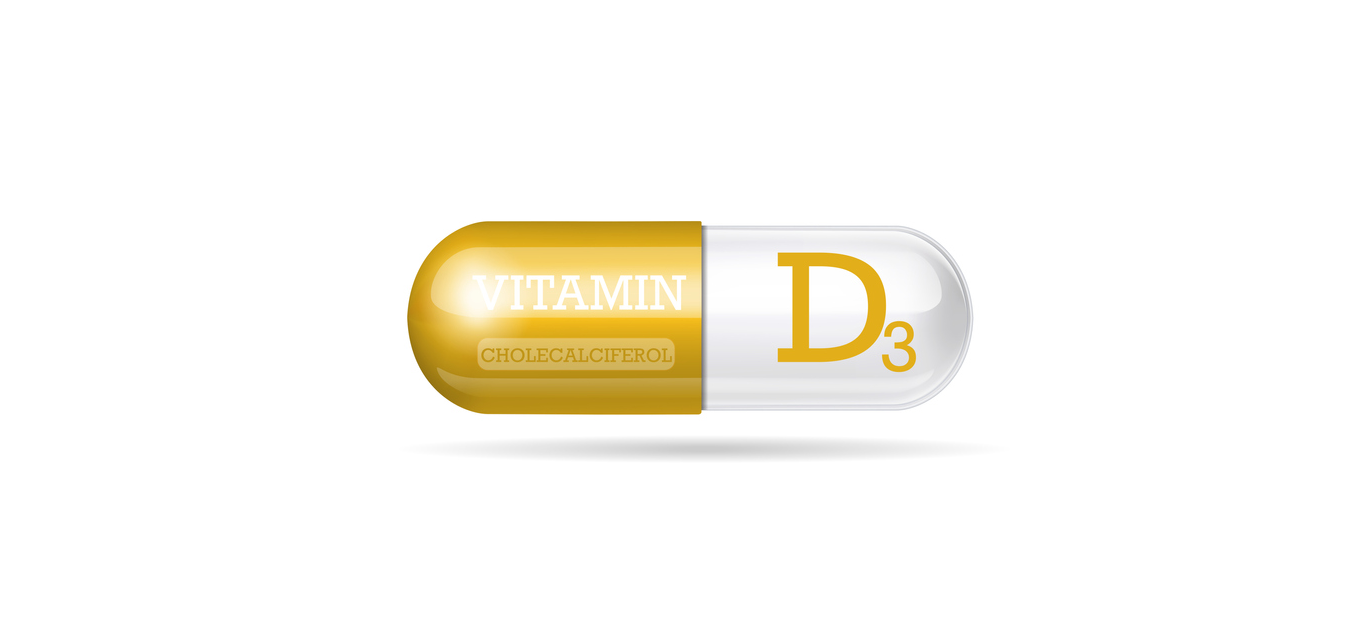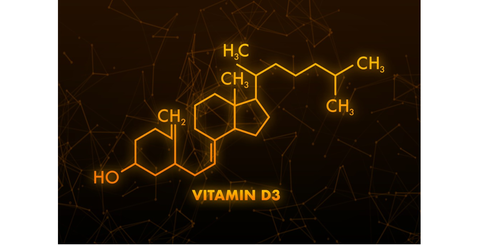Top 6 reasons to combine Vitamin D3 and Magnesium Glycinate? | Trio Nutrition

The information in this article and throughout Trio Nutrition’s blog is for informational purposes only, and should never be mistaken for professional medical advice.
Historical Perspective
The story of Vitamin D3 and magnesium is a tale of two essential nutrients that have played pivotal roles in human health throughout history. Both these nutrients, while distinct in their functions, have intertwined histories that reflect their significance in maintaining our overall well-being.
Vitamin D3, also known as cholecalciferol, is a fat-soluble vitamin that plays a crucial role in calcium absorption and bone health. The history of Vitamin D dates back to the early 20th century when scientists were investigating a mysterious disease called rickets, which primarily affected children and led to weak bones and deformities. Researchers discovered that exposure to sunlight could prevent and cure rickets, eventually leading to the identification of Vitamin D as the key player. The importance of Vitamin D3 in maintaining strong bones became undeniable, and it was later recognized as a vital nutrient for overall health.
Magnesium, on the other hand, has a history dating back to ancient times. Its name originates from the Greek region of Magnesia, where the mineral-rich waters were first noted for their medicinal properties. Magnesium is an essential mineral involved in numerous biochemical processes in the body, including muscle and nerve function, blood glucose control, and blood pressure regulation. Its significance in human health has been appreciated for centuries, and it continues to be a subject of research and exploration in modern times.
Chemical Structure and Forms
Vitamin D3, as cholecalciferol, is a naturally occurring form of Vitamin D. It can be synthesized by the body when the skin is exposed to sunlight. Additionally, Vitamin D3 can be obtained through dietary sources, such as fatty fish (like salmon and mackerel) and fortified foods like milk and breakfast cereals. In supplement form, it is available as Vitamin D3.

Magnesium exists in various forms, with magnesium citrate and magnesium oxide being common supplemental forms. Magnesium is abundant in a wide range of foods, including leafy greens, nuts, seeds, whole grains, and legumes. It's also an essential component of some antacids and laxatives.
Vitamin D3 has a multitude of crucial roles in the body, including:
- Bone Health: Vitamin D3 plays a central role in calcium absorption from the intestines, which is essential for maintaining strong bones and preventing conditions like osteoporosis.
- Immune Support: Emerging research suggests that Vitamin D3 may help modulate the immune system, potentially reducing the risk of infections and autoimmune diseases.
- Mood and Mental Health: Some studies have linked Vitamin D3 deficiency to mood disorders like depression and seasonal affective disorder (SAD).
- Heart Health: There is evidence to suggest that adequate Vitamin D3 levels may be associated with a lower risk of cardiovascular diseases.
The recommended daily dose of Vitamin D3 varies depending on age, sex, and individual health conditions. Adequate Intake (AI) levels are provided for reference:
- Adults (19-70 years): 600-1000 IU (15-25 mcg) per day
- Adults (71 years and older): 800-2000 IU (20-50 mcg) per day
Dietary Sources of Magnesium include:
- Leafy Greens: Spinach, kale, and Swiss chard are excellent sources of magnesium.
- Nuts and Seeds: Almonds, cashews, and pumpkin seeds are rich in magnesium.
- Whole Grains: Foods like whole wheat, brown rice, and oats contain magnesium.
- Legumes: Beans, lentils, and chickpeas provide a healthy dose of magnesium.
- Dairy: Some dairy products, like yogurt and milk, are good dietary sources.
- Supplements: Magnesium supplements are widely available and can help individuals meet their daily requirements. Try Trio Nutrition's Magnesium Complex or the World-Famous Magximum.
Despite its importance, magnesium deficiency is relatively common. Several factors can increase the risk of magnesium deficiency:
- Inadequate Dietary Intake: Diets high in processed foods and low in magnesium-rich foods can lead to deficiency.
- Certain Medical Conditions: Conditions like diabetes, gastrointestinal disorders, and kidney disease can interfere with magnesium absorption or increase its excretion.
- Medications: Some medications, such as diuretics and proton pump inhibitors, can deplete magnesium levels.
- Alcohol Consumption: Excessive alcohol intake can lead to magnesium deficiency.
- Age: Older adults are at a higher risk of magnesium deficiency due to reduced absorption and increased excretion.
The Top 6 Reasons for Combining Vitamin D3 and Magnesium Glycinate
Vitamin D3 and magnesium, while essential on their own, can also complement each other in various ways when taken together:
- Enhanced Calcium Absorption: Vitamin D3 facilitates calcium absorption in the intestines, while magnesium contributes to calcium's proper utilization in the body. Together, they support bone health by ensuring calcium is deposited where it's needed.
- Muscle and Nerve Function: Magnesium is vital for muscle and nerve function, while Vitamin D3 helps maintain muscle strength. This combination can be especially beneficial for athletes and those with active lifestyles.
- Mood and Sleep: Both nutrients play roles in regulating mood and sleep patterns. Some individuals may experience improvements in mood and sleep quality when they ensure adequate levels of both Vitamin D3 and magnesium.
- Immune Support: Vitamin D3 is known for its immune-modulating properties, while magnesium supports overall immune function. Combining them can provide comprehensive immune support.
- Heart Health: Both nutrients have been associated with cardiovascular health. Vitamin D3 helps regulate blood pressure, while magnesium supports healthy blood vessels. Together, they can promote heart health.
- Energy Production: Magnesium is involved in energy metabolism, and Vitamin D3 may contribute to overall vitality. This combination can help combat fatigue and support energy levels.
In conclusion, the dynamic duo of Vitamin D3 and magnesium glycinate offers a range of health benefits when combined. These nutrients, while distinct in their functions, work together to support bone health, immune function, mood, and overall well-being. Whether obtained through a balanced diet or as supplements, ensuring you meet your daily requirements of both Vitamin D3 and magnesium is a wise choice for optimal health. So, if you are looking for a way to improve your health, consider taking Trio Nutrition’s World Famous Magximum, the world's first magnesium glycinate supplement to also contain Vitamin K2, D3 and MCT Oil Powder - all in a vegetarian capsule. Try it now with our 60-day risk free money back guarantee.
Always consult with a healthcare professional or nutritionist for personalized guidance on your supplement choices and dietary needs to achieve optimal health outcomes. A well-balanced diet, along with the right supplements, can pave the way for a healthier and happier you.

Leave a comment